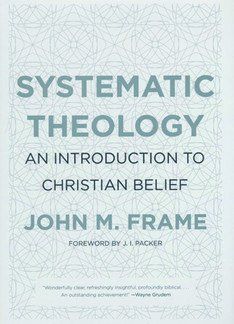Systematic theology — an introduction to Christian belief
John M. Frame
P & R Publishing
1,220 pages, £39.99, ISBN: 978-1596382176
Star rating : 5
John Frame is a professor at Reformed Theological Seminary in Orlando, Florida, and is known for his four-volume Theology of lordship and an introduction to systematic theology, Salvation belongs to the Lord.
The present volume bears a modest subtitle, as Frame is not writing primarily for academia but for the edification of a broader informed public. It is a fine book for first-time ‘Framers’ and will stand alongside Grudem and Reymond as one of the major evangelical systematic theologies, for many a year to come.
This is a magnificent achievement that caps an outstanding career. Frame is biblical in content, clear in expression, accessible, and, above all — because theology is all about application — practical in the service of the church.
Scripture is determinative for Frame: ‘The Bible is the most important thing … the most important aspect of theological work is to present to readers what the Bible says’
(p. xxxi).
Such an approach is refreshing in the present theological scene. Frame has no complexes about academic respectability, but aims at writing a theology that corresponds to sola Scriptura.
To do this he proposes a ‘triadic’ method of exposition that shows how biblical realities invariably come in threes. When man encounters God, there are necessarily three covenantal perspectives involved in each meeting and doctrine arising from it: the normative, as God is the Lord; the situational, in which God’s authority is expressed; and the existential, perspective of the receptive creature.
As to the content of this enormous book, Frame follows a traditional order, adding chapters on the Christian life and ethics.
If his primary aim is to do justice to Scripture, he can hardly be accused of neglecting the present. He gives fair treatment to current debate, when the need arises.
Frame tackles the big issues, such as the problem of evil; divine sovereignty and human responsibility; and human freedom and libertarianism. His critique of the latter, in 15 points (pp. 825-830), is that ‘we must abandon either libertarianism or sola Scriptura’.
Much more could be said about the qualities of Frame’s thorough and impassioned defence of biblical truth and his willingness to swim against the tide when it is going out.
On every page, the reader will find reasons for praise and thankfulness, reflection, and agreement (or disagreement, for example on church government and baptism), because Frame speaks to us in such a way that he never leaves us indifferent.
The book’s price may be high, but the investment will repay a hundredfold!
Paul Wells
Faculté Jean Calvin, Aix-en-Provence, France







